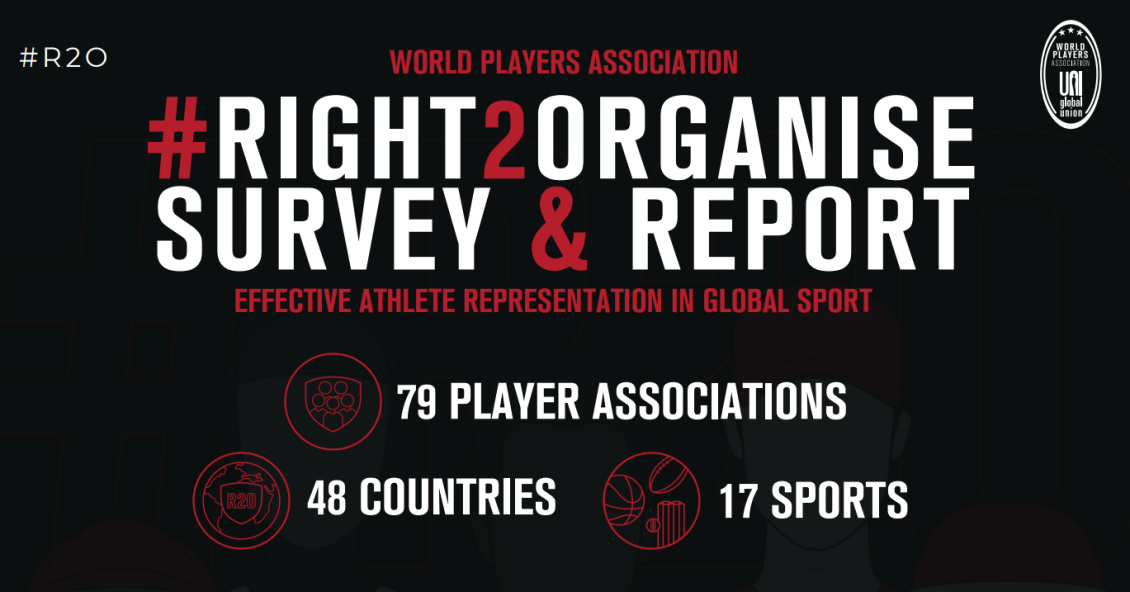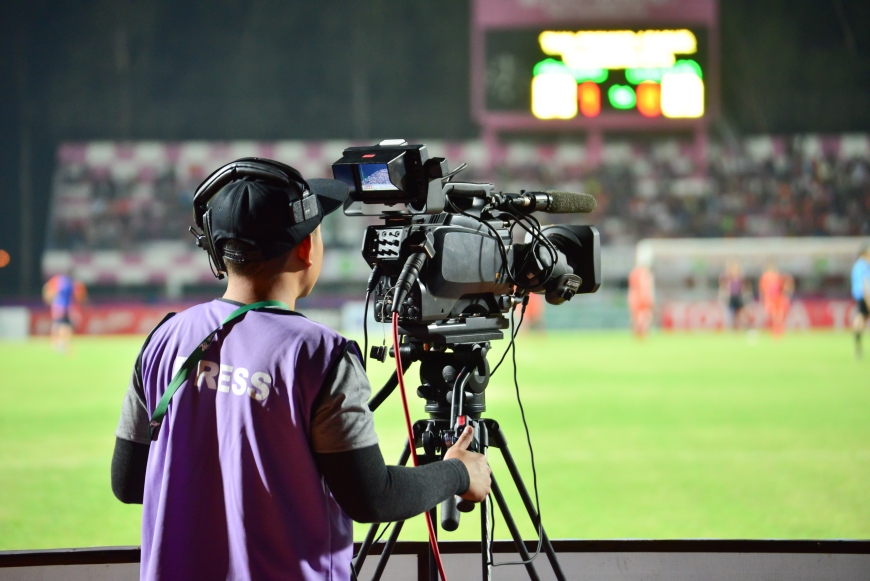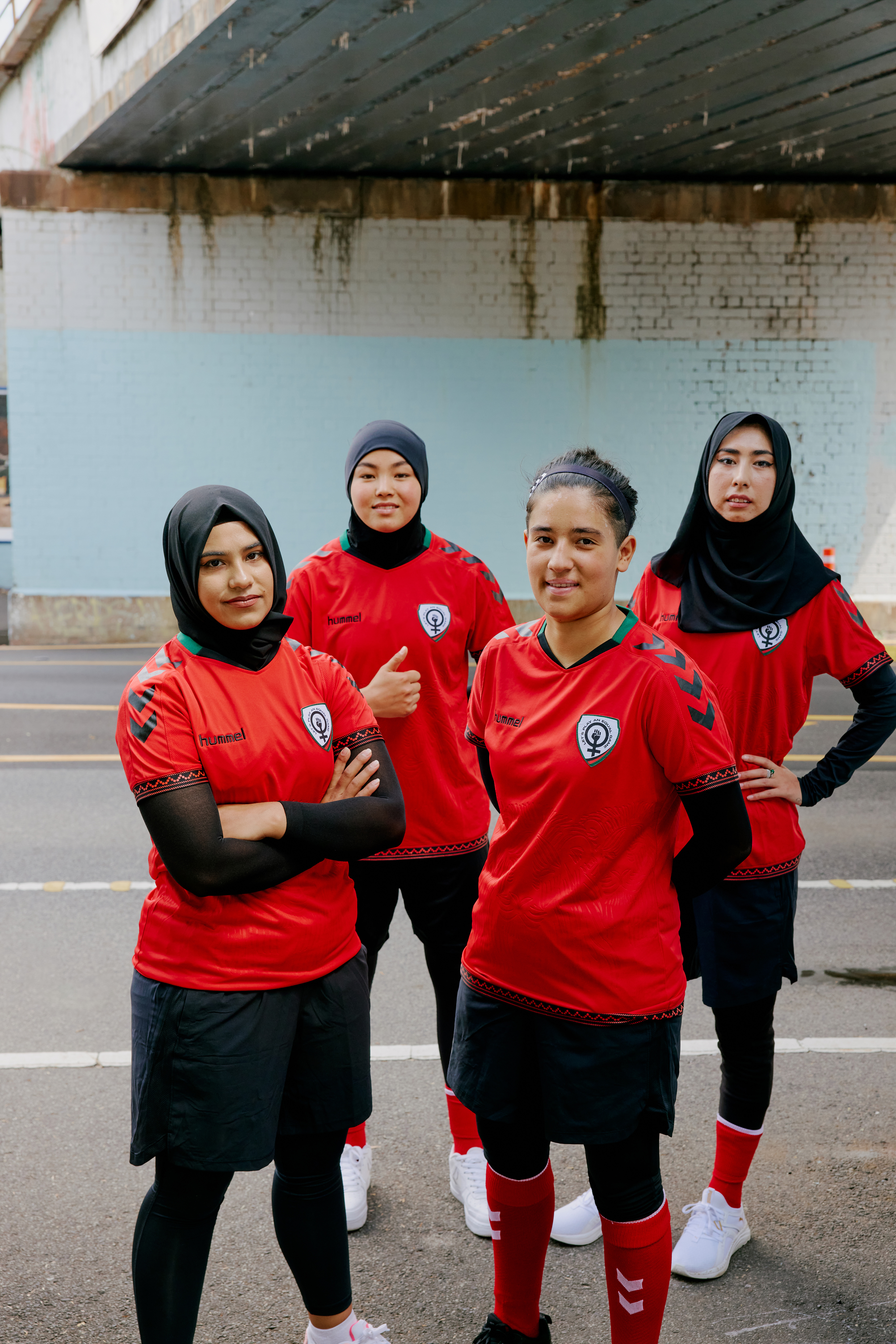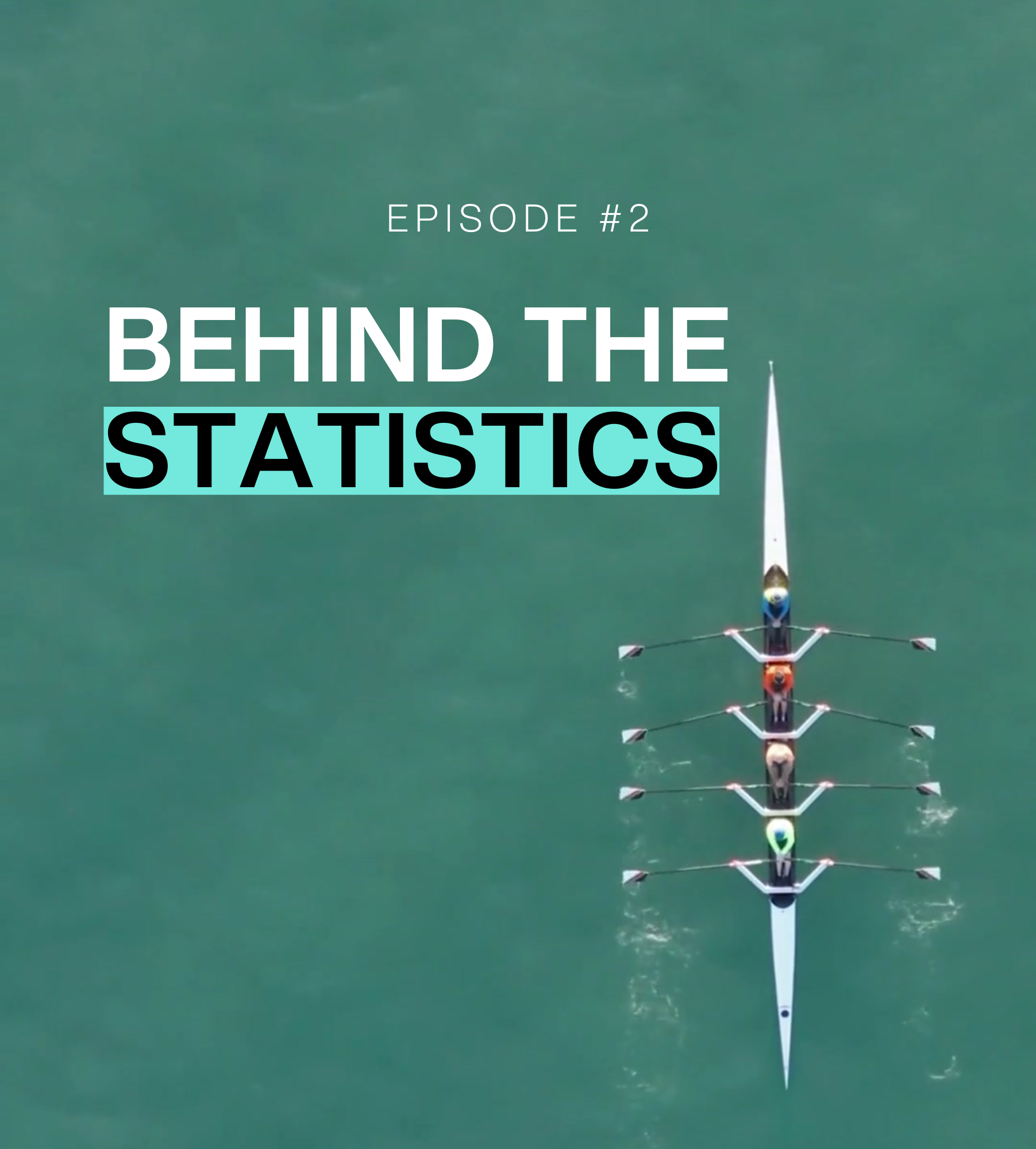A landmark survey released by the World Players Association (WPA) today uncovers that players face significant barriers to exercising their internationally recognized human rights to organize and to collectively bargain- #R2O – in global sport. The report titled, #R2O: Effective Athlete Representation in Global Sport 2023 outlines why #R2O is essential to the ability to effectively represent athletes and improve their conditions.
The survey, the first of its kind, analyzes results from 79 player associations (PAs), in 48 countries, from 17 different sports – collectively representing more than 80’000 athletes and a comprehensive, although incomplete, sample of the 138 different player associations affiliated to the WPA. Participants were asked various questions relevant to key player and athlete rights challenges, in particular those relating to effective athlete representation.
The report’s major findings include:
- Of the PAs surveyed, 70% indicated trade union rights and 75% deemed labour and economic rights to be top concerns.
- Although 86% of PAs are formally recognized by their counterparts, several barriers exist to the free and full enjoyment of #R2O. The top three barriers identified being:
- Sham amateurism and the denial of the status of athletes as workers.
- The imposition of sport-specific laws and carve-outs.
- Widespread cultures of anti-union behaviour.
- Anti-union conduct is rife within the industry with most PAs subject to acts which include:
- direct discrimination and harassment of union members, including egregious threats of violence to players, their representatives, and families.
- Union avoidance strategies which are particularly prevalent in cricket and Olympic movement-dominated sports where management created and controlled forms of athlete representation are often imposed.
- Almost 80% of PAs have taken some form of collective or strategic action to improve their terms and conditions of work and play.
Most survey responses came from PAs representing athletes in professional team sports. The report, however, empirically demonstrates the ineffectiveness of other modes of athlete representation. There are thousands of athletes throughout prominent Olympic sports who are forced to compete in circumstances and environments that fall well below the standards their brothers and sisters have collectively bargained. Athlete commissions and merely having a seat at the table is insufficient if athletes want to improve their livelihoods and their sports – this can only be done via negotiating agreements, built upon meaningful cooperation with PAs.
WPA Interim Executive Director, Matthew Graham, said:
“Where the right to organize is respected, sport enjoys what is arguably the most sophisticated system of industrial relations in the world with an extensive range of matters collectively bargained including – standard contracts, revenue sharing, player development and wellbeing programs, group licensing and anti-doping policies, occupational health and safety matters and many others.
At the same time, the struggle for #R2O to be fully respected throughout global sport is ongoing. Anti-union conduct is rife within the industry which ultimately harms athletes and perpetuates power imbalances that leave them vulnerable.”
The report demonstrates that respect for the right to organize and collectively bargain has been a win-win across sports, countries and regions and is the key to resolving the challenges facing the industry. This standard helps embed player rights, promotes the expansion and economic development of the global sporting landscape, and supports stakeholders in navigating key governance and regulatory challenges.
WPA First Vice President and FIFPRO General Secretary, Jonas Baer-Hoffman, said:
“It is through the vision and leadership of the players that key advances have been made in transforming not only their livelihoods, but often their entire sports for the better. We are committed to working with player associations, established and emerging, to ensure that players and athletes, at all levels of sport, can establish, join and enjoy the benefits of effective athlete representation through strong and independent player associations and unions.”
The report importantly outlines the practical steps key actors in global sport must take to ensure they protect and respect #R2O. This includes the leagues and clubs who employ athletes, the national and global governing bodies that determine (often unilaterally) conditions of work, as well as national governments responsible for regulating employment standards.





